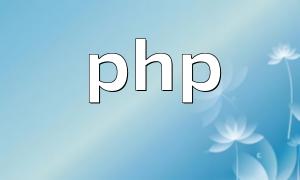In modern network application development, performance optimization is a crucial step. PHP Libevent is a powerful event-driven library that helps developers handle I/O operations in a non-blocking manner, boosting the response speed and concurrency of PHP applications.
The following sections introduce several performance optimization strategies based on PHP Libevent to help improve application efficiency.
Using PHP Libevent, asynchronous I/O processing can be achieved, preventing PHP scripts from blocking while waiting for a single request. This mechanism significantly enhances the concurrency capability of applications, allowing multiple client requests to be handled simultaneously.
$event = new Event($base, $socket, Event::READ | Event::PERSIST, function($fd, $events) { // Handle read events});$event->add();PHP Libevent offers multiple event loop implementations, allowing developers to choose the most suitable one according to their specific needs. Choosing the right event loop not only improves performance but also reduces CPU usage and enhances system stability.
$base = new EventBase();$signalEvent = new Event($base, SIGTERM, Event::SIG, function() use ($base) { $base->loopExit();});$signalEvent->add();PHP Libevent’s timer feature efficiently manages periodic tasks, reducing system resource waste and optimizing overall performance.
$timerEvent = new Event($base, -1, Event::TIMEOUT | Event::PERSIST, function() { // Timer task}, null);$timerEvent->add($timeout);By leveraging PHP Libevent for asynchronous I/O, efficient event loops, and timer management, PHP application performance and responsiveness can be significantly enhanced. When properly configured for real scenarios, these optimization strategies effectively reduce resource consumption and improve user experience.









